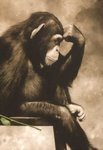Gaining insight into the origins of magical thinking in medicine
Like a ghostly apparition that flirts just beyond the reach of our grasp, the placebo has seemingly evaded capture and clear definition by modern medicine, at least within the context of real world practice.
Paradoxically, the apparently real, yet illusory and mysterious placebo "effect" creates a quandary within modern medicine that beckons for serious consideration. Practitioners, patients, or persons involved one way or another in medical practice need to strive for a deeper, more comprehensive understanding of this phenomenon. Can we define a placebo? How does the placebo impact health and disease? Is it real?
Indeed, there is question whether the placebo as a discreet entity truly exists. There are many studies that find no evidence for any placebo effect and in fact attribute any supposed effects to other natural causes. Other studies allude to psychosomatic placebo influences on the perception of an illness. Still others point to social and cultural origins of placebo "beliefs". In essence, it seems that today, the placebo can be best understood as an general umbrella term. It seems to have become a "catch phrase" that embraces a variety of properties confusing perceived effects with naturally occurring and variable phenomena. Additionally, the highly volatile and subjective world of human emotion and belief add to the mystique of the placebo.
By gaining insight into the realm and impact of the placebo and exploring associated phenomena we can better understand its appropriate place in medicine. In other words, differentiating the placebo effect from other common characteristics of the disease process avoids a reliance on the placebo for imagined therapeutic effects by even well meaning healing practitioners.
Interestingly, after examining over 800 studies related to the placebo effect, researchers at the Institute for Applied Theory and Methodologies in Health Care found that approximately 60% of disease in these cases resolved spontaneously (This percentage may be smaller in veterinary medicine). Known as statistical regression, this is part of the natural variability observed with disease. Therefore as practitioners we need to realize that their are natural factors other than the placebo that influence apparent therapeutic effect. Studies like these are part of an ongoing process of understanding and illustrates the importance of having a broad knowledge of the natural history of disease.
That is, how does a disease proceed with out any intervention at all? Lacking this knowledge, it is easy to see how confounding and confusing factors can influence the interpretation of a given therapeutic effect and how it is perceived by the clinician, not to mention a lay person. In addition, the matter is further complicated if we lack an efficient system by which to critically evaluate our treatments of diseases. As clinicians, we need to be able to discern the difference between what we do and the natural processes and responses of how the body reacts to disease.
In twenty years of practicing veterinary medicine, I have often come across the placebo effect within the realm of the client/pet/doctor relationship. It has manifested in may ways. The very simple act of entering the exam room can have seemingly magical effects on the pet or clients attitude. The placing of hands on the pet, or acknowledging the clients emotions has often bridged a communicative space creating a sense of bonding and trust. This sometimes seems to have an influence on the perceived responses to a given action by the doctor.
These interesting effects made me realize that their is a grey amorphous world, like the fleeting image just beyond ones visual periphery we alluded to earlier that seemed to impact my practice of medicine. A multitude of questions came to mind. What is this thing? Are there powers beyond my senses? Is this a form of magic?
In time, I eventually began to come to some basic realizations. Being of average intelligence, it has been a rather circuitous road, at times perilously close to losing myself to the mystic netherworld of magical thinking. Eventually though, I learned how to ask the right questions and critically think through these often confusing concepts. Broadening my comprehension of the natural sciences and how people interpret them brought about a much more balanced perspective of medicine than I previously held.
Fundamental interactions such as presence, conversation, eye contact, touching and smiling seemed to tangibly influence how well I reached my clients. I came to understand the wonderful impacts and frustrating limitations of what could be reasonably offered to my animal patients and their human charges.
This journey in veterinary clinical medicine has made me realize the wonder and beauty of the world as it truly is. No need for superlatives and imaginary beings; reality is "magical " enough to far exceed our wildest expectations.




No comments:
Post a Comment